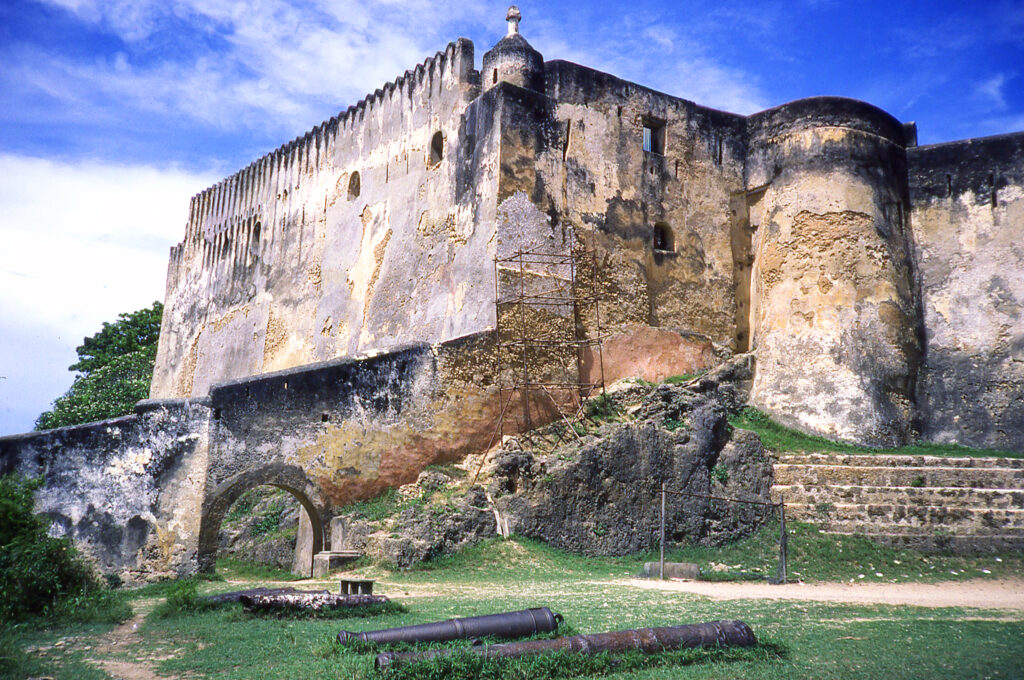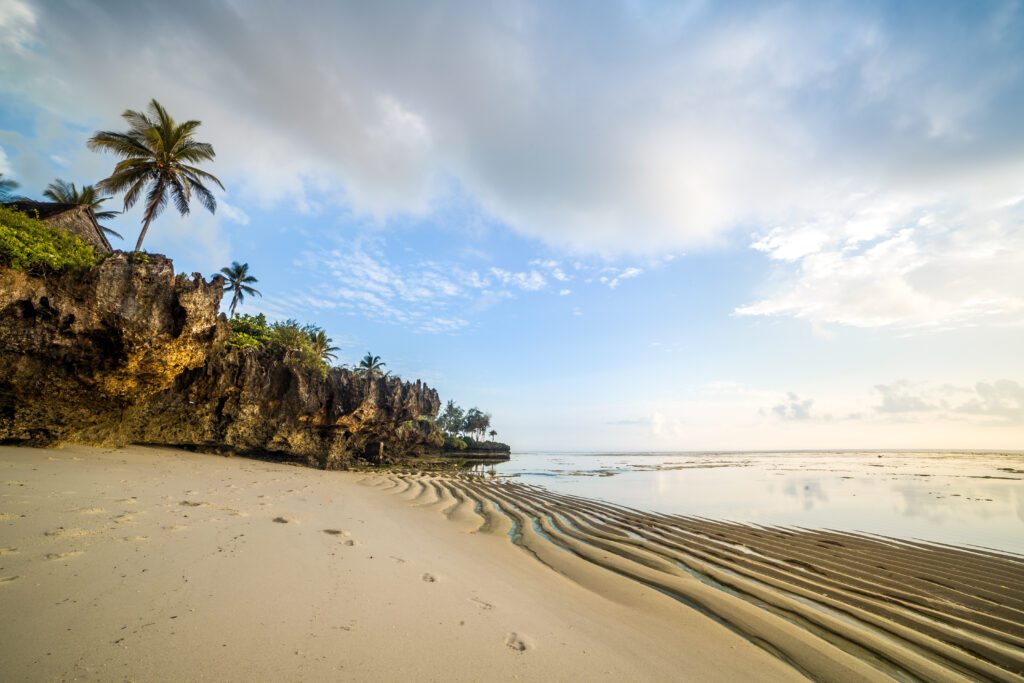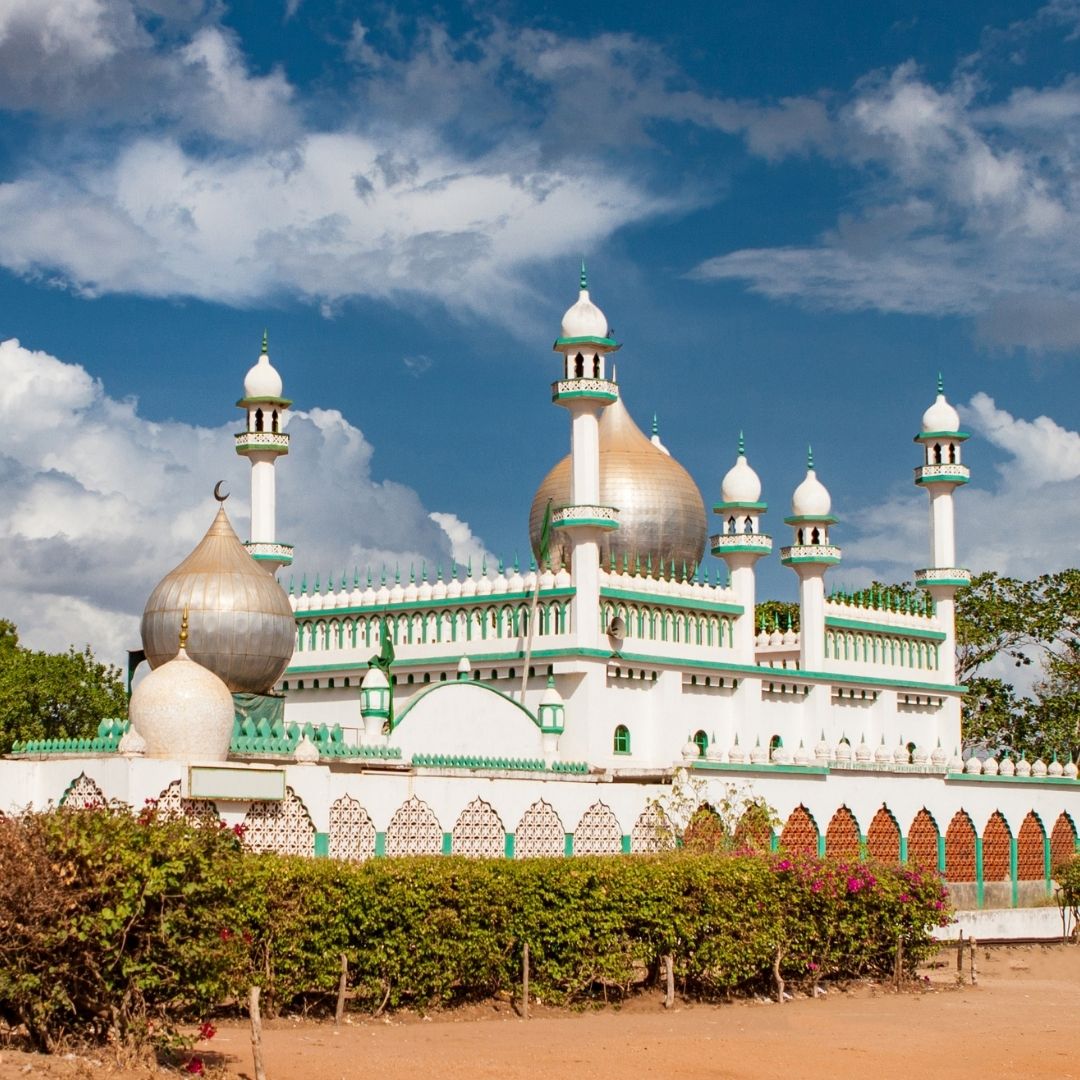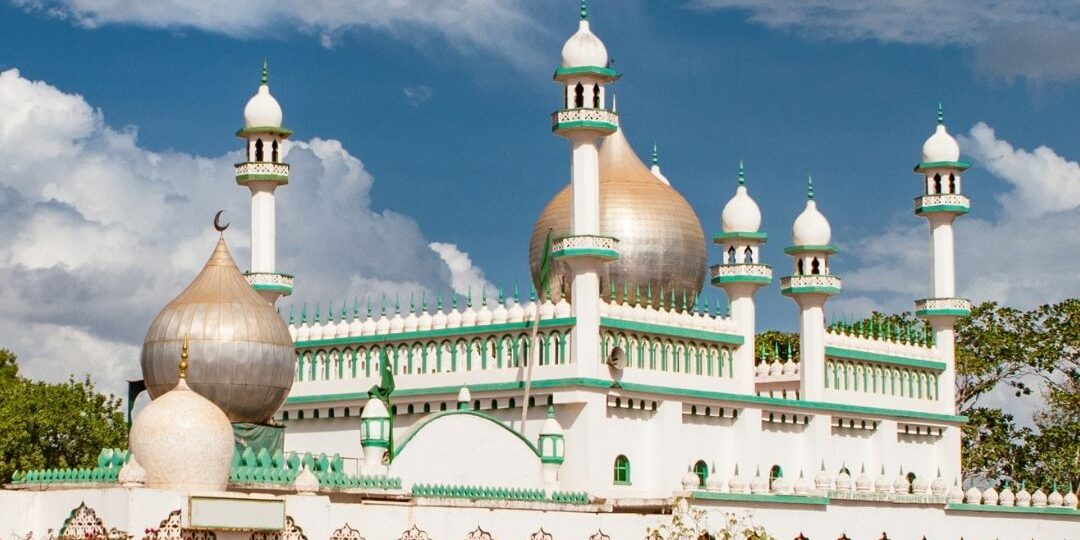A trip to Mombasa
I was hit by the heat and bustle, when I arrived in Mombasa. I walked down Haile Selassie road to the old town, while tuk tuks and cars were driving past, and turned down the narrow streets of coral stone buildings with filigreed porches. A woman with henna-painted hands sold pineapples and papayas along the road. I walked on to a spice market where paprika, cloves and cinnamon were displayed in colorful buckets. I passed ornately carved doors and women in long black garments sitting on the fretwork balconies of the Swahili stone houses.
Coming to the old harbor, the dhow masts and white lateen sails were flapping in the wind, and men were unloading burlap sacks from a dhow. For centuries, the island of Mombasa and other Swahili settlements along the coast had much sea trade with Omani Arabs, Indian merchants, Persian traders. Sea explorers and sultans were involved in the history of the port city, the dhows catching the trade winds to Arabia and India, trading sandalwood, ebony, ivory and slaves. On a cement stoop in the shade, two men in white robes and skull caps, sat cross legged, playing a round of bao on a mancala board. Nearby, on a sandy beach, a group of older boys played pick-up soccer while Fort Jesus squatted on the edge of the coral ridge, guarding the old port.

Later I took a bus to my beach hotel. The lobby was decorated with some driftwood sculptures on a stone floor and had a roof of mangrove poles and palm leaves. While checking in, I was served chilled orange juice.
After settling into my room I walked over to the lobby. I walked through a rickety screen door, past a woman sweeping the driveway with a broom made from dried coconut fibre, and took a sand path leading down to the beach. I walked on the hot white sand, flopped on a beach towel and smeared on some sunscreen. Fishing nets were drying in the sun. A man was walking camels down the beach. Taking in the sun, lying on the sand, there was the smell of suntan lotion in the salty air. A man came by selling coconuts, cut one with a panga and handed me a half in exchange for a few shillings. After a while, I walked down to the shelving sand by the ocean and waded into the water.

A man was weaving palm fronds to thatch the roof of one of the cabanas as I made my way back to the hotel. I walked up the sandy path. I shook the sand off my feet as I entered the thatched-roofed bar, and then settled in there for a late afternoon drink. There was plenty to like about being here. It was a place to take it slow, a place to get away from it all.
Down a sandy lane from the hotel was a bamboo-and thatch restaurant. I went there for dinner and ate a delicious grilled red snapper and rice cooked in coconut milk. The atmosphere was heightened by a power cut as I ate the meal by the beach with candles casting flickering lights across the waters. It was warm in the evening as I sat there among the palm trees. A gentle breeze from the ocean rustled the fronds, now and then, and cooled the air.
In the morning, I woke to birdsong and sunlight. I walked over to the filigreed porch of the restaurant and sat on a scuffed chair under a twirling ceiling fan. They served a good breakfast. I ate some toast and rhubarb jam, eggs and bacon while watching the fishermen hauling in their nets, taking in the catch of the morning.
After enjoying breakfast, I walked by rows of palm trees down to the beach. I put my towel down on the sand. The sun splashed light against the leaves of coconut trees swaying in the breeze. Sitting down in the dappled shade, lulled by the wind tousling the palm leaves, I put on my headphones. Scrolling through my beach playlist, I queued up a track by Alpha Blondy.








